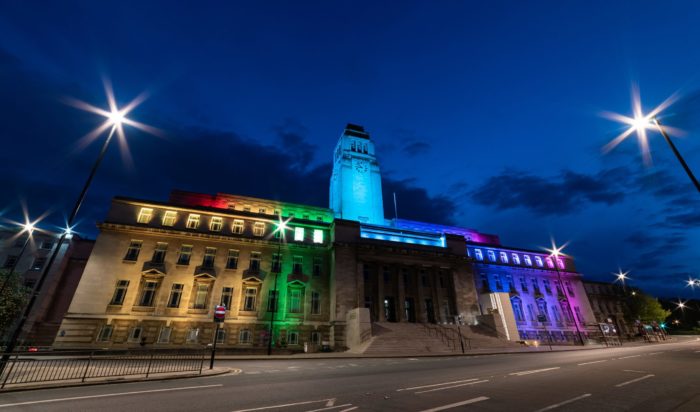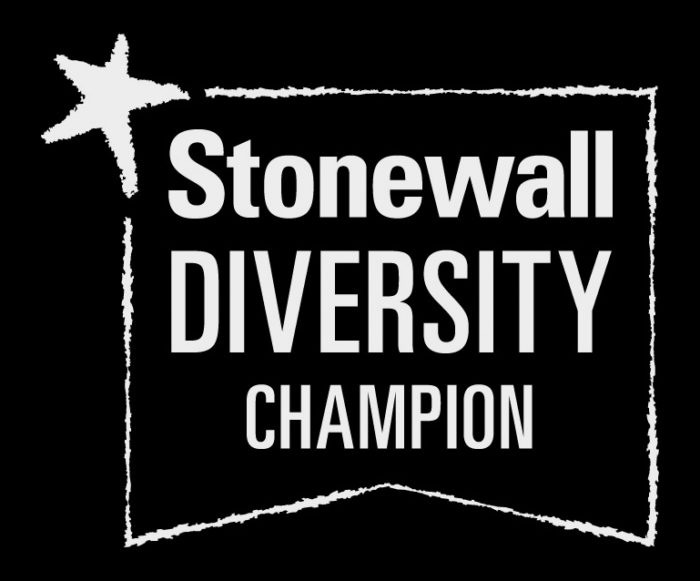International Day Against Homophobia, Biphobia and Transphobia (IDAHoBiT) 2020

Sunday 17 May marks the International Day Against Homophobia, Biphobia and Transphobia (IDAHoBiT). IDAHoBiT is recognised in over 130 countries and has taken place annually since 2004. It was established in order to draw attention to the violence and discrimination experienced by lesbian, gay, bi, trans and intersex people, and all other people with diverse sexual orientations, gender identities or expressions, and sex characteristics.
LGBT+ people across the globe continue to face hate, discrimination and violence. UK Home Office figures show that recorded hate crimes based on sexual orientation and gender identity increased by 27 per cent and 45 per cent respectively between 2015/16 and 2016/17.
This year's IDAHoBiT theme is "Breaking the Silence" and encourages everyone to speak up and make their voices heard.
Page Contents
Reporting homophobia, biphobia and transphobia at the University
Breaking the silence - LGBT+ perspectives
Get involved in IDAHoBiT 2020
Supporting the LGBT+ community through Covid-19
The LGBT+ staff network
Additional support within the University
Reporting homophobia, biphobia and transphobia at the University
The University of Leeds believes that every member of staff and every student should be treated with dignity and respect, and has the right to work, study and be taught in a supportive environment that is free from harassment, bullying and victimisation.
The University Policy on Dignity and Mutual Respect (PDF) is the University’s policy against bullying, harassment and victimisation. This document outlines complaints procedures for staff and students, along with sources of advice and support.
Breaking the silence - LGBT+ perspectives
At the University of Leeds we know that visible role models are important, and that they can help to encourage, influence and develop others. In line with the theme of this year's IDAHoBiT, "Breaking the Silence", our LGBT+ role models have been sharing their perspectives.
Freyja Douglas-McTurk
Freyja Douglas-McTurk, Disability Advisor and LGBT+ role model at the University, reflects on the relevance of IDAHoBiT both locally and globally, and shares a personal message during these challenging times.
Becoming an LGBT+ parent
As a woman in a same sex relationship about to become a parent, Heather Swinsco (HR Officer) shares her journey in getting to this point and the support she has received. Heather also talks about the community she and others are continuing to build for LGBTQIA families at the University.
Find more stories on the LGBT+ role models page.
Get involved in IDAHoBiT 2020

Parkinson lit up in rainbow colours. Image credit: George Stamets
Parkinson Building is also being lit up in full rainbow colours on 16 May in recognition of the date.
Where you feel safe doing so, we invite you to:
- Make your voice heard by joining the conversation online, using the hashtag #IDAHoBiT
- Join the virtual event run by Leeds LGBT+ Literature Festival, where videos of talks and readings by LGBT+ poets and authors are being posted daily between 11 - 17 May;
- Follow the Stonewall hashtag #StayInForLGBT on Twitter, highlighting online events you can get involved in;
- Watch the films made available for free on some platforms through Peccadillo Pictures, including Are You Proud? - a film showing rare archive footage and interviews charting the LGBTQ+ movement's momentous journey, celebrating the community’s greatest achievements, and calling attention to the fights both past and present.
Supporting the LGBT+ community through Covid-19
Recognising the potential impact of Covid-19 on LGBT+ people, it’s more important now than ever that we stand in solidarity with all vulnerable and marginalised groups.
If you are able to support other LGBT+ people, Stonewall have compiled a list of LGBT-friendly support organisations.
OutLife also list ideas for how you can support LGBTQ+ people, such as calling older people who might be isolated and lonely, and donating to local projects.
There is a summary of useful and LGBT+ relevant resources available on the EPU coronavirus web page. Please share these resources with your networks.
Other support you may find helpful:
- Gendered Intelligence – a charity working with the trans community and those who impact on trans lives
- Stonewall - providing information and support for everyone in the LGBT+ community
- LGBT Foundation - the UK's largest health and community charity supporting the needs of LGBT+ people
- Non-Binary Leeds – peer-led support and social group for non-binary people in Leeds and the surrounding areas
- Trans Leeds – Leeds based support group for Transgender, Non-Binary and Gender Non-Conforming people
- GIRES – an organisation working to improve the lives of trans and non-binary people, their friends, families and colleagues
- Proud ‘N’ Diverse - non-profit LGBTQI+ support and social group based in Leeds City Centre
The LGBT+ Staff Network
The LGBT+ staff network provides confidential support to all employees on LGBT+ issues, including support for staff who may want to report homophobic, biphobic and transphobic bullying and harassment. The network is open to all employees and PGR students, and is inclusive of LGBT+ people with multiple identities (for example, BAME LGBT+ people, and disabled LGBT+ people).
For information about the network's Trans, Non-binary and Intersex community meetups, currently taking place online via Microsoft Teams, contact: trans@leeds.ac.uk
Additional support within the University
- LUU LGBT+ Society
- LUU Student Help & Support
- University Equality & Inclusion Co-ordinators
- University Equality & Inclusion policies
- Dedicated support from Stonewall
- Student Counselling and Wellbeing Service
- Staff Counselling and Psychological Support Service
For questions about the information on this page, please contact: equality@leeds.ac.uk.

